Online quiz helps predict likelihood of teen substance use
Assessment helps parents and caregivers intervene early when kids are at risk for drug and alcohol use.
Parents are sometimes shocked to learn that their teenager has a problem with drugs or alcohol. But new Kaiser Permanente research suggests there may be clues in a child’s medical history.
Based on these findings, our researchers worked with the Partnership to End Addiction to develop a free online quiz that anyone can use to predict a young person’s risk of substance use.
“This tool is meant to help parents and clinicians more reliably predict when a child is at risk for a future substance use problem, so they can intervene with preventive measures and early treatment,” said Stacy Sterling, DrPH, MSW, an investigator at the Kaiser Permanente Division of Research in Northern California and co-director of its Center for Addiction and Mental Health Research.
“Our ability to make predictions has been limited to anecdotal evidence and best guesses, and research has shown those methods don’t work well,” she added. “We’re hoping this tool can be a step toward a more evidence-based approach.”
Experimentation or something more?
Our researchers began by analyzing the medical records of 41,000 adolescents born between 1997 and 2000. Using a sophisticated data technique known as machine learning, they worked to identify health issues related to the use of drugs or alcohol in the teen years.
Their study, published in the Journal of Substance Abuse Treatment, found several childhood-based health issues that are risk factors, including oppositional defiance disorder, trauma- or stress-related disorder, attention deficit hyperactivity disorder, and self-injury.
Young people who went on to develop bipolar disorder, depression, eating disorders, and self-harm as teens were also found to be at higher risk for substance use.
“Parents told us they were suddenly finding out their teen was getting high on weekends — something the parents themselves may have done when they were younger without suffering severe negative consequences,” said Sean Clarkin, senior advisor at the Partnership to End Addiction. “So they want to know how worried they should be about their kid’s experimentation. There are answers to that question because of this study.”
Helping parents take action
The online quiz allows insights from the study to be shared in a parent-friendly format. Focus groups of parents and pediatricians provided feedback on the quiz to make sure it was useful and easy to understand.
After completing the quiz, the user gets an assessment of a young person’s risk of a substance use disorder, along with resources for next steps and tips on how to get help. Jointly developed by Sterling’s research team and the partnership, resources include playbooks of educational materials for the parents of teens and preteens.
An online e-learning program “explains why kids use substances in the first place and offers skills parents can use to have conversations about difficult subjects and encourage healthier behaviors,” said Pat Aussem, associate vice president of consumer clinical content development at the Partnership to End Addiction.
Sterling likens this effort to other health education campaigns meant to help people identify risks early, such as monitoring a child’s skin for sun damage to avoid skin cancer later in life.
“Substance use remains stigmatized, and there’s an idea that these are ‘bad kids,’” she said. “We are trying to change that and normalize prevention of substance use problems like any other health concern. We want to arm all of us — parents, patients, clinicians — with some additional information to protect our kids and nurture healthy development.”
Find resources and support for people with substance use disorders.
Take the free online quiz to learn if a child you know may be at risk of substance use.
-
Social Share
- Share Online Quiz Helps Predict Likelihood of Teen Substance Use on Pinterest
- Share Online Quiz Helps Predict Likelihood of Teen Substance Use on LinkedIn
- Share Online Quiz Helps Predict Likelihood of Teen Substance Use on Twitter
- Share Online Quiz Helps Predict Likelihood of Teen Substance Use on Facebook
- Print Online Quiz Helps Predict Likelihood of Teen Substance Use
- Email Online Quiz Helps Predict Likelihood of Teen Substance Use

May 7, 2025
How to cope with anxiety after childbirth
As a new mother, Cherissa Ong was overwhelmed by stress. A mental health …

April 30, 2025
From fighter to father: How addiction care changed his life
Travis Taylor has substance use disorder and mental health conditions. …

April 23, 2025
Healing the human spirit
Kaiser Permanente strives to support survivors of sexual violence.

March 29, 2025
We are meeting mental health care access requirements
The investments we’ve made over the last several years have resulted in …

March 27, 2025
We’re committed to mentorship, mental health, and communities
Kaiser Permanente awarded Elevate Your G.A.M.E. a grant to expand program …

March 5, 2025
6 definitive traits of a middle child
Parade

February 26, 2025
Spring into a better night’s sleep
A Kaiser Permanente sleep expert shares tips for decreasing the impact …

February 25, 2025
Providing care to trauma survivors
Kaiser Permanente has been at the forefront of recognizing how trauma impacts …

February 11, 2025
Stressed about the news? Try a ‘news diet’ — and hugs
When news and online information become too stressful, Dr. Sammie LaMont …

February 4, 2025
What is therapy, anyway?
At Kaiser Permanente, our care is personalized for each patient's mental …

January 24, 2025
Is one drink a day OK? Here’s what to consider
NPR

January 22, 2025
A preteen overcomes anxiety and suicidal thoughts
A young Kaiser Permanente member speaks up to gain the mental health support …
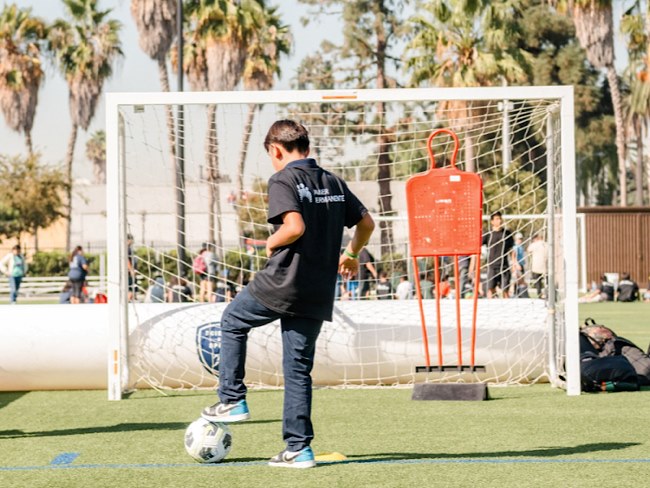
December 30, 2024
Fit and thriving: Inspiring students at school
Kaiser Permanente and Los Angeles Football Club are committed to building …

December 19, 2024
From darkness to sobriety and recovery
Once suicidal and on the verge of losing his job, Eric Jeffers has found …

December 13, 2024
How to stay happy and healthy over the holidays
Sammie LaMont Moss, MD, a psychiatrist for Kaiser Permanente in Colorado, …

December 10, 2024
Accelerating growth in the mental health care workforce
Actions policymakers can take to grow and diversify the mental health care …
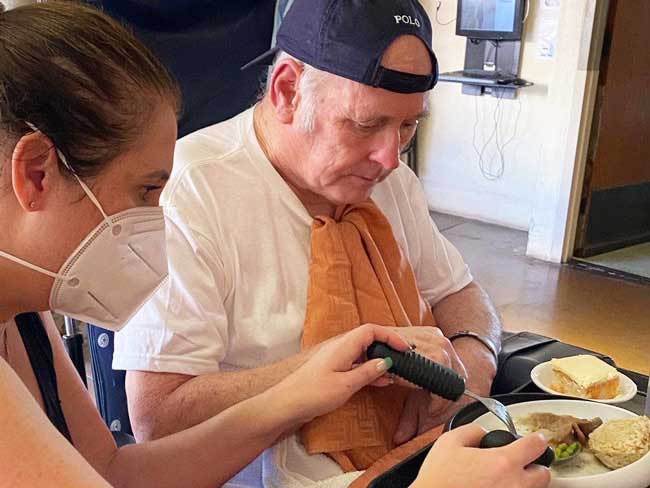
November 13, 2024
Self-care for caregivers matters: Here’s why
A sharp increase in rates of adult caregiving is taking a mental and physical …

November 4, 2024
Recruitment and retention in behavioral health
An expert’s insights on the changing mental health landscape, its impact …

October 23, 2024
Doomscrolling? It may affect your heart.
Endless bad news is just one fingertip away online. One Kaiser Permanente …

October 18, 2024
Hidden hazards of Halloween
Expert tips to ensure your little ghosts and goblins stay safe this Halloween, …

October 10, 2024
Child anxiety relief: Therapy gets a digital boost
Shiloh Sevin’s well-being improves thanks to her psychologist and the Calm …

October 8, 2024
Exploring your relationship with alcohol
If you're rethinking your habits, here are some questions to keep in mind.

October 4, 2024
Study shows new way to prevent suicides
Primary care teams can make a big difference in their patients’ lives, …

October 4, 2024
Teacher learns about herself and how to live with anxiety
A lifelong educator seeks behavioral health care to manage repetitive worries, …

October 1, 2024
From depression to connection: Older adult finds her way
After a long period of loneliness and isolation, Roberta Maguire gets the …

September 27, 2024
Youth suicide in the digital age is raising concerns
Young people face growing pressures from social media, school, and other …
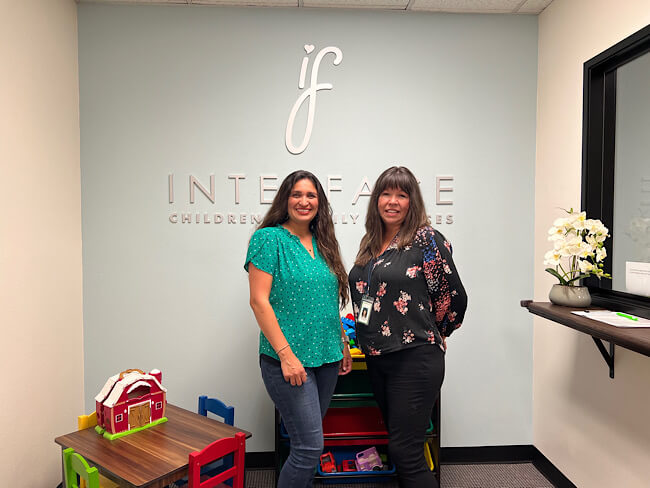
September 27, 2024
Traumatized children find mental health therapy beneficial
A Ventura County community-based nonprofit provides counselors to help …

September 17, 2024
A Latina’s voice in mental health is impactful with her clients
Connecting through a shared heritage gives one therapist a unique perspective …

September 11, 2024
Buprenorphine saves lives. Why can’t more patients get it?
Policy changes are crucial for better opioid addiction treatment.

August 16, 2024
After severe depression, a ‘rainbow lit up my sky’
Shannon Parkin survived 7 suicide attempts. She shares her story of hope …

July 18, 2024
Easy school lunch and snack tips
Ideas for healthy, delicious, and hassle-free snacks and lunches to keep …

July 11, 2024
Transforming education and mental health in Watts
Our investment in the Watts neighborhood of California, in partnership …
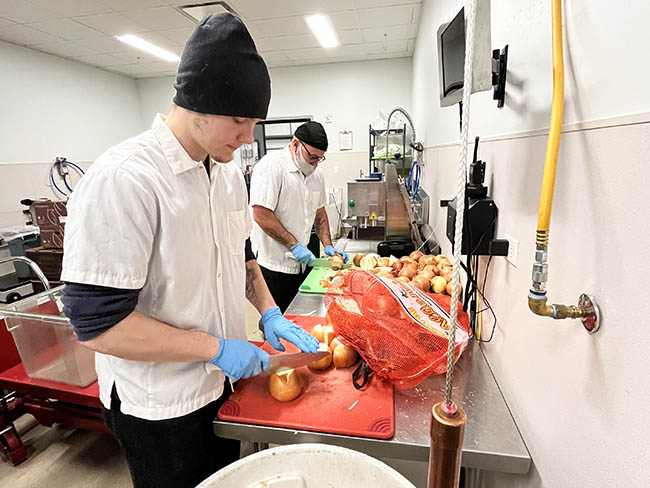
July 10, 2024
Grant to help make school lunches healthier for kids
Chef Ann Foundation will use $275,000 grant for Colorado program to convert …

July 9, 2024
Antiaging skin care … for kids?
Kids as young as 9 are using antiaging products. A Kaiser Permanente dermatologi …

June 28, 2024
Operation Splash makes a splash for safe summer fun
Kaiser Permanente is making waves this summer, ensuring that communities …

June 28, 2024
Health Action Summit highlights mental health opportunities
The Kaiser Permanente Colorado Health Action Summit gathered nonprofits, …

June 27, 2024
5 facts about autism
A Kaiser Permanente doctor shares key details. By learning more about autism, …

June 25, 2024
Prompt postpartum care saves a baby’s life
When a newborn was diagnosed with meningitis, a life-threatening infection …

June 19, 2024
Investments in Black community promote total health for all
Funding from Kaiser Permanente in Washington helps to promote mental health, …
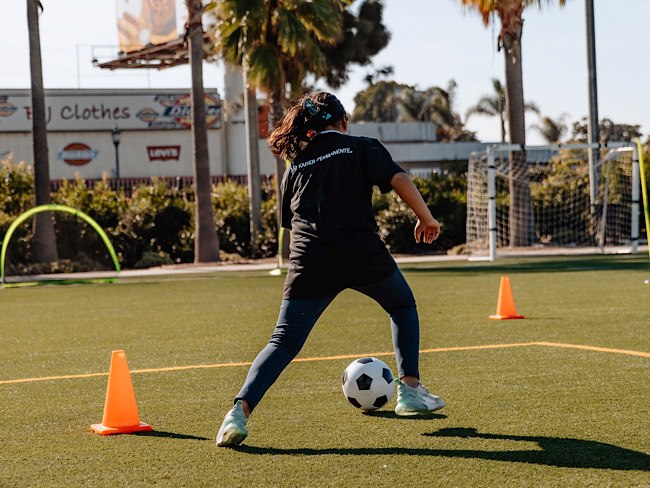
May 31, 2024
Inspiring students to take charge of their health
Kaiser Permanente and the Los Angeles Football Club will launch the second …

May 14, 2024
A key ally in navigating mental health care for kids
Behavioral health consultants can provide a better understanding of often …

May 10, 2024
Self-care is key for new parents
Feeling emotional or overwhelmed after a new baby’s arrival? You’re not …

May 3, 2024
Lonely and depressed — but not alone
After a lifetime of feeling isolated, Moth Wygal finds connection thanks …

April 29, 2024
Soccer star: ‘Let’s talk about mental health’
Naomi Girma, a sports ambassador for Kaiser Permanente, is passionate about …

April 10, 2024
For a new mom, talking about her worries helped her heal
One in 5 people experience depression, anxiety, or other mental health …

March 14, 2024
Midwife offers personal care for mom facing complications
For Sam Beeson, having a midwife at her side during her pregnancy helped …

February 21, 2024
From planning his funeral to celebrating his wedding
Gabriel Abarca had no hope for his future. Then the team at Kaiser Permanente …

February 13, 2024
A legacy of life-changing community support and partnership
The Kaiser Permanente Watts Counseling and Learning Center started as a …

February 12, 2024
Proposition 1 would bolster mental health care in California
Kaiser Permanente supports the ballot measure to expand and improve mental …

February 2, 2024
Expanding medical, social, and educational services in Watts
Kaiser Permanente opens medical offices and a new home for the Watts Counseling …

January 29, 2024
Empowering minds to help others thrive
Supporting behavioral and mental health in communities where needs are …

January 24, 2024
A full-circle journey for one cancer survivor
Grateful for compassionate and successful Hodgkin lymphoma treatment at …

January 22, 2024
Solutions for strengthening the mental health care workforce
Better public policies can help address the challenges. We encourage policymaker …
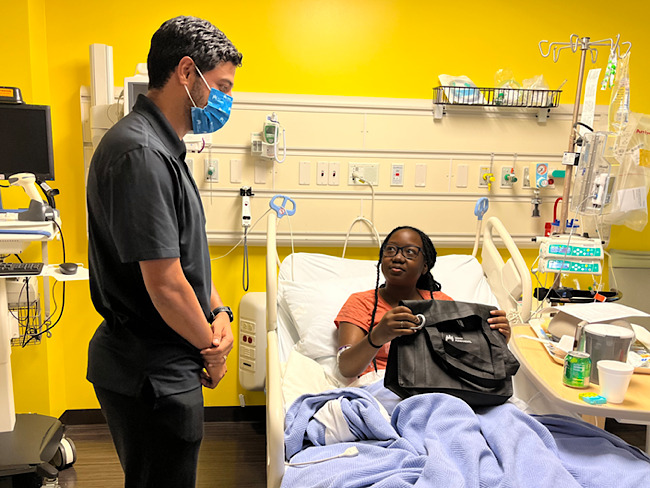
January 12, 2024
Cheering up hospitalized children
Los Angeles Football Club player Carlos Vela brings joy to Kaiser Permanente …

January 3, 2024
Addressing the shortage of mental health workers
There aren’t enough mental health professionals in the U.S. to meet the …

December 15, 2023
Family-centered care, through pregnancy and beyond
Members experiencing a low risk pregnancy have the option of having their …

December 15, 2023
Building healthy communities through play
Kaiser Permanente teams up with Los Angeles Football Club to build 5 futsal …

December 8, 2023
Inspiring a Wave of Wellness with youth
Kaiser Permanente and San Diego Wave Fútbol Club educated San Diego youth …

December 7, 2023
Safe, secure housing is a must for health
We offer housing-related legal help to prevent evictions and remove barriers …

November 29, 2023
Tapping into an array of mental health options
Pavan Somusetty, MD, explains how people who need support and guidance …

November 15, 2023
Spreading the truth about flavored tobacco and youth vaping
A youth vaping curriculum is making a difference.

October 27, 2023
Nearsightedness in kids: Taking a closer look
Nearsightedness, also known as myopia, is on the rise. To reverse that …

October 25, 2023
Critical care and support for our youngest patients
In Oregon, specialists and parents come together to design a specialized …

October 24, 2023
Childhood anxiety: What parents need to know
A child and adolescent psychiatrist shares tips on supporting your child …

October 11, 2023
Bridging the mental health gap
Kaiser Permanente’s partnership with Fontana Unified School District brings …

September 27, 2023
Harvest your power
Use biofeedback to help manage stress.

September 27, 2023
From suicide survivor to mental health advocate
Former Major League Baseball player Drew Robinson shares his story of hope …

September 13, 2023
Mental health champion: A mission inspired by personal loss
San Diego Wave Fútbol Club star defender Naomi Girma, Kaiser Permanente …

September 6, 2023
Recovery from addiction is possible
Our clinicians help patients get the care they need to move forward with …

August 28, 2023
Grants improve the total health of our communities
Kaiser Permanente increases access to mental health services in Southern …

August 22, 2023
Mental health
Expanding access to high-quality mental health services

August 14, 2023
Tips for ensuring a safe and healthy college experience
Students should study up on their care options to ace their school experience. …

August 10, 2023
Successfully navigating the school year
These tips from Don Mordecai, MD, Kaiser Permanente’s national mental health …

August 4, 2023
Eating well and adopting healthy habits helps prevent cancer
Learn how lifestyle medicine is part of cancer care at Kaiser Permanente.

June 30, 2023
Men's mental well-being is a priority
Unique challenges and societal pressures can impact men’s emotional well-being.

June 28, 2023
Making waves to empower young girls
Kaiser Permanente and the San Diego Wave Fútbol Club host a second Wave …
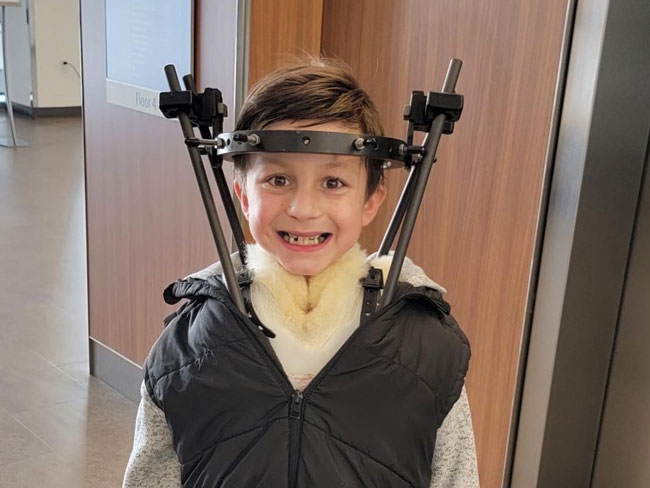
June 27, 2023
Comforting, personalized care for a kiddo with cancer
Carter Shaver from Portland, Oregon, shares his optimistic smile after …

June 23, 2023
Get the mental health support you need
Kaiser Permanente is here to help with care and valuable tools to support …

June 21, 2023
And that’s why they call postpartum the blues
Take time to adjust to a new baby and lifestyle changes — and reach out …

June 9, 2023
Mental health, addiction, and the power of a peer
Shared experience helps young people in Oregon build confidence for their …

June 7, 2023
Teen social media use may lead to depression
Creating a healthy relationship with social media can help safeguard the …

June 6, 2023
COVID-19 vaccine: No serious side effects in young children
Kaiser Permanente researchers led analysis of large, diverse group of young …

June 5, 2023
Understanding and living with bipolar disorder
A Kaiser Permanente member shares his personal journey of navigating bipolar …

June 1, 2023
Policy recommendations from a mental health therapist in training
Changing my career and becoming a therapist revealed ways our country can …
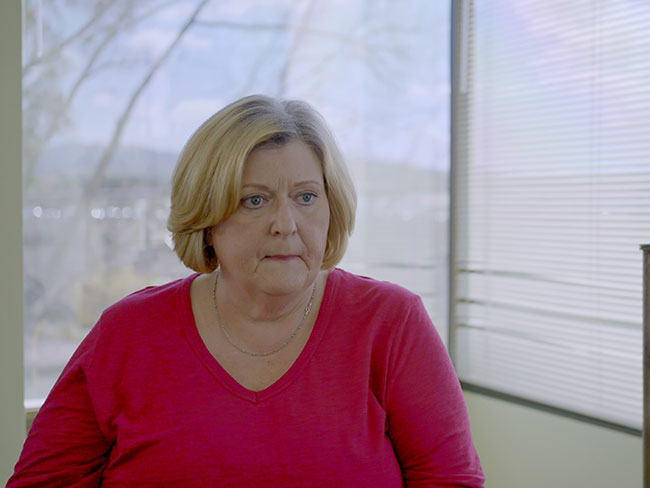
May 22, 2023
Sidelined by injury, a former nurse seeks depression care
Susan Sandhu struggled to find meaning in her life after an injury forced …
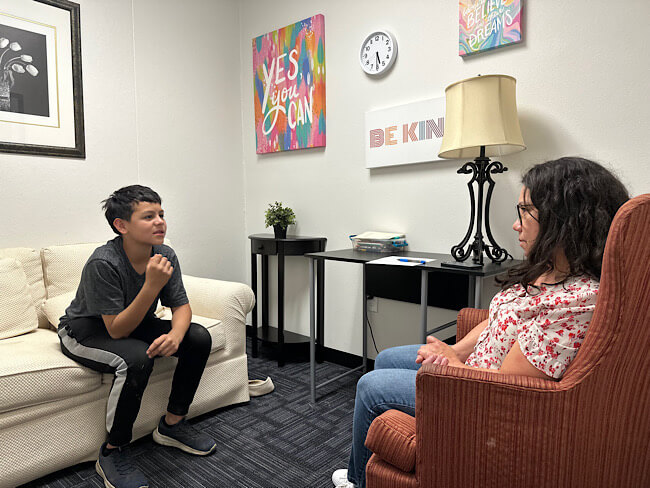
May 18, 2023
Addressing mental health trauma in a local community
Trauma-informed outreach efforts in Orange County are being recognized …

May 16, 2023
Managing trauma does not need to be traumatic
Expanded access to high-quality, affordable mental health care supports …

May 9, 2023
School shootings provoke anxiety in many children
Child psychiatrist defines anxiety, its symptoms, how to address it, and …

April 14, 2023
The importance of screening for gestational diabetes
Gestational diabetes poses a significant risk to women of color, particularly …
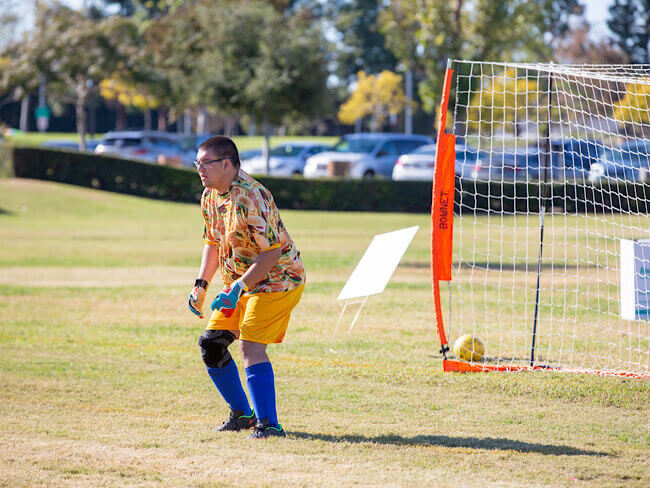
March 29, 2023
Volunteering helps create healthier communities
Kaiser Permanente’s partnership with Special Olympics Southern California …

March 24, 2023
Finding hope after a mental health and addiction crisis
Treatment for bipolar disorder and opiate addiction helps a Kaiser Permanente …

March 16, 2023
Supporting our children after acts of mass violence
Southern California psychiatrist offers practical advice for parents to …

March 14, 2023
Extra pounds put kids at higher risk for hypertension
Kaiser Permanente study shows even modest elevations in BMI above the “average …

March 13, 2023
Making waves with our first female sports ambassador
Kaiser Permanente in Southern California partners with San Diego Wave Fútbol …

March 7, 2023
For moments when you may not need to see a therapist
Kaiser Permanente provides members with convenient ways to improve their …

February 24, 2023
Nurturing expectant moms who have substance use disorders
Project Nurture in Portland, Oregon, provides treatment and a path forward …

February 23, 2023
Eating disorders on the rise among teens
Expert shares 5 valuable tips for parents and guardians to help children …

February 7, 2023
Employee honored for her dedication to our communities
Valerie Dionne wins our 2023 George Halvorson Community Health Leadership …

February 2, 2023
Addressing social isolation in the Northwest
Kaiser Permanente invests $3.3 million to build healthy social connections …

January 19, 2023
Understanding stress and how to manage it
A Kaiser Permanente psychiatrist shares advice for coping when stress won't …